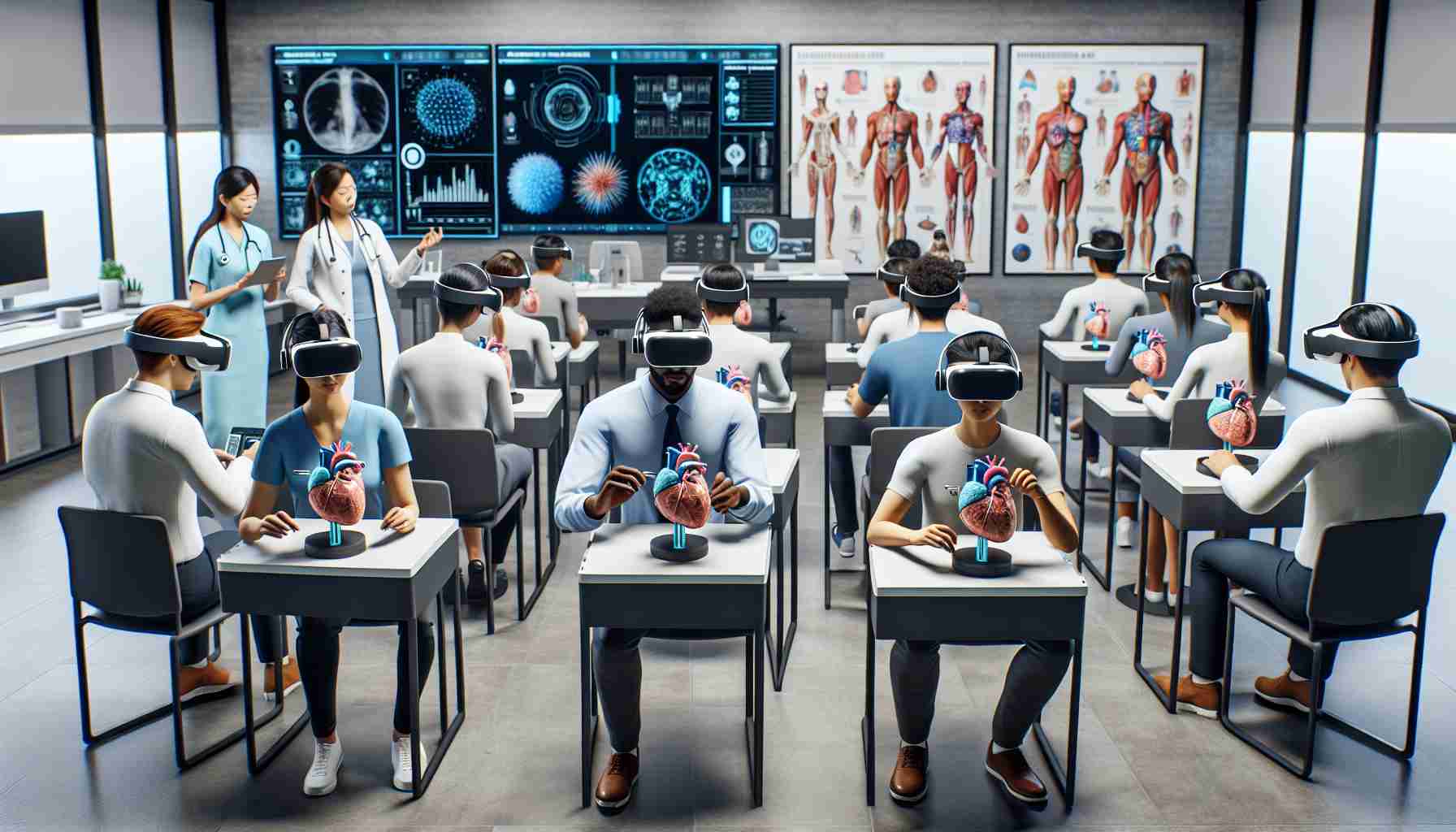A new era is emerging in healthcare education as innovative technologies are being integrated to enhance patient understanding and provider skills. Rendever, a leader in virtual reality experiences, is collaborating with healthcare facilities to introduce VR technology for hospice care, revolutionizing the way social connections are formed and social isolation is reduced. Through immersive VR sessions using Lenovo’s cutting-edge headsets, Carolina Caring is at the forefront of this transformative approach.
In the realm of surgical training, Fundamental VR is pushing boundaries by incorporating artificial intelligence into its platform to offer predictive insights and personalized learning experiences. The AI Tutor within the Fundamental Surgery platform empowers users with expert guidance and real-time feedback to enhance surgical skills. This shift towards learner autonomy and adaptive support is fostering a culture of continuous improvement among medical professionals.
Meanwhile, HouseCall VR and the University of Georgia College of Pharmacy are teaming up to develop virtual reality models for diabetes education, aiming to improve patient comprehension of pharmaceutical treatments. By leveraging immersive technology, HouseCall VR is paving the way for a future where patients have access to healthcare education in a more interactive and engaging manner.
These collaborations signify a shift towards a more tech-forward approach in healthcare education, emphasizing the importance of immersive experiences in improving patient outcomes and enhancing provider skills. As the healthcare industry continues to embrace digital transformation, the potential for immersive technologies to democratize healthcare education and empower both patients and providers is becoming increasingly evident.
Additional facts related to revolutionizing healthcare education through immersive technology include:
– **Simulation Training**: Virtual reality (VR) and augmented reality (AR) are being utilized in medical education to simulate surgeries, procedures, and patient interactions, providing a safe and realistic environment for students to practice and learn.
– **Remote Training**: Immersive technology allows for remote training opportunities, enabling medical professionals to access educational resources and participate in training sessions from different locations.
– **Data Analytics**: Some immersive platforms incorporate data analytics to track learner performance and provide insights for continuous improvement and personalized learning paths.
Key questions related to the topic:
1. **How effective is immersive technology in improving patient outcomes and healthcare provider skills?**
– Immersive technology has shown promise in enhancing learning experiences and patient outcomes, but further research is needed to measure its long-term impact.
2. **What are the challenges associated with implementing immersive technology in healthcare education?**
– Challenges may include cost barriers, technical complexities, user acceptance, content development, and ensuring ethical use of data.
Advantages of immersive technology in healthcare education:
– **Enhanced Engagement**: Immersive experiences make learning more interactive and engaging, leading to better retention of information.
– **Personalized Learning**: Customized training modules and feedback can help learners improve specific skills at their own pace.
– **Realistic Simulations**: VR and AR simulations provide a safe environment for practicing complex procedures without risking patient safety.
Disadvantages of immersive technology in healthcare education:
– **Cost**: Setting up and maintaining immersive technology systems can be expensive, especially for institutions with limited budgets.
– **Technical Issues**: Glitches or delays in the technology can disrupt training sessions and impact the learning experience.
– **Accessibility**: Not all learners may have equal access to immersive technology, potentially creating disparities in educational opportunities.
Suggested related links:
– Rendever
– Fundamental Surgery
– HouseCall VR
